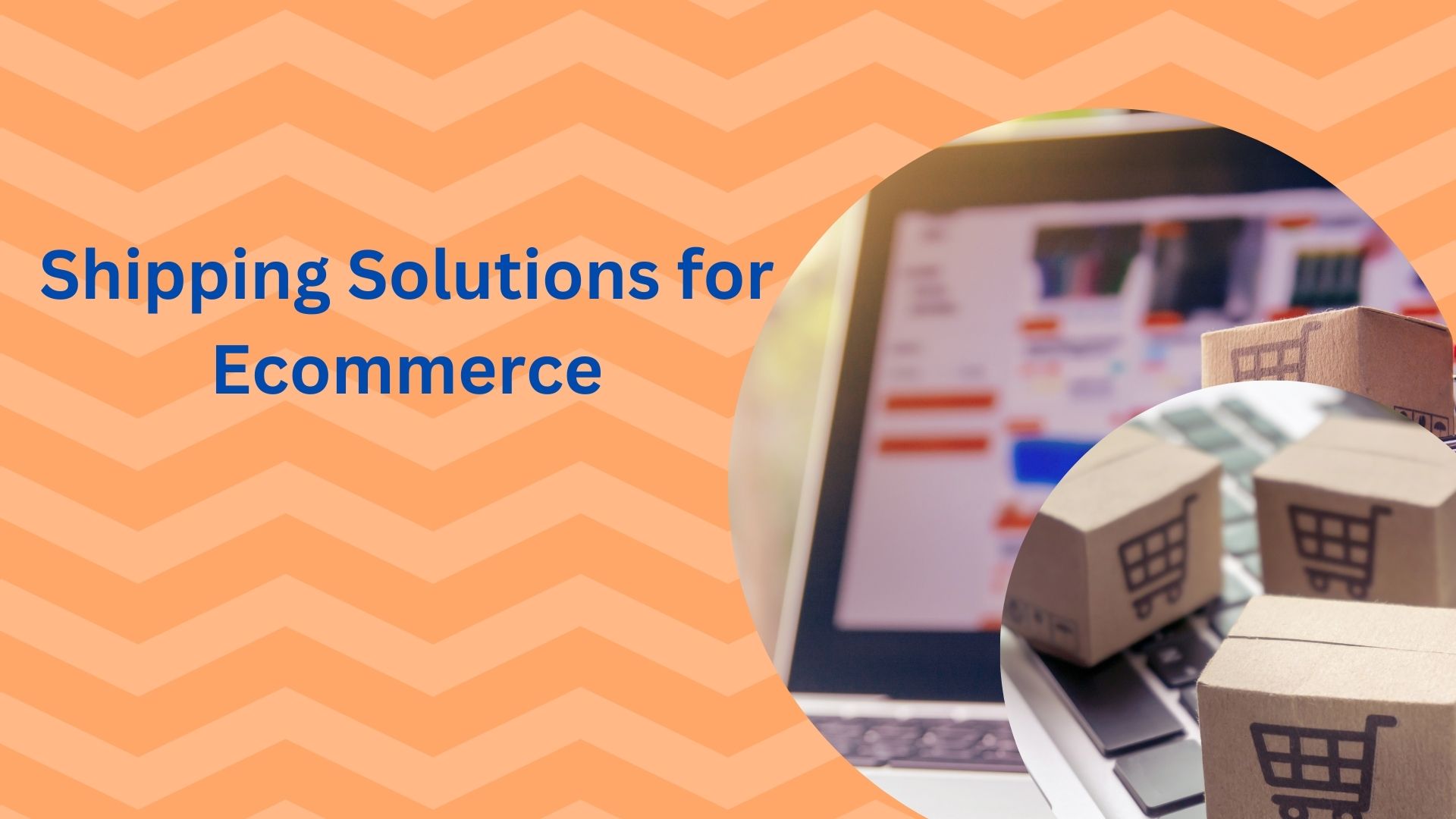Shipping solutions for ecommerce are crucial for a successful online business. Efficient shipping methods, including carrier partnerships and fulfillment centre services, play a pivotal role in meeting customer expectations and ensuring timely deliveries.
These solutions encompass a range of strategies, from selecting the right shipping platform to offering flexible pricing plans, all aimed at streamlining the shipping process and enhancing the overall customer experience. With the rise of ecommerce, businesses are increasingly seeking optimized shipping solutions for their online storefronts.
In this digital landscape, the competition is intense, and customers expect swift and reliable shipping services. As a result, implementing the right shipping solutions is vital for meeting these demands and gaining a competitive edge. From identifying the best shipping platform for small businesses to understanding the various carrier options, ecommerce merchants must navigate through an array of shipping considerations to optimize their operations. We will delve into the complexities of ecommerce shipping and provide insights into selecting the most effective shipping solutions for online businesses.
1. Benefits Of Shipping Solutions
Shipping is an essential aspect of any ecommerce business. It plays a crucial role in ensuring customer satisfaction, operational efficiency, and overall business success. Implementing the right shipping solutions can provide numerous benefits to ecommerce businesses. Let’s take a closer look at some of the key advantages:
1.1 Cost-saving Options
One significant benefit of using shipping solutions for ecommerce is the availability of cost-saving options. With the right shipping software or service, businesses can access discounted rates from shipping carriers. These discounted rates can significantly reduce shipping costs, helping businesses save money in the long run. Additionally, shipping solutions can enable businesses to compare rates from different carriers, ensuring they choose the most cost-effective option for each shipment.
1.2 Automated Order Fulfillment
Automated order fulfillment is another advantage provided by shipping solutions. With shipping software, businesses can streamline their order management process, eliminating the need for manual data entry and reducing human errors. The software can automatically import orders, generate shipping labels, and update tracking information, saving time and effort for ecommerce businesses. By automating order fulfillment, businesses can process orders faster, leading to improved customer satisfaction and increased operational efficiency.
1.3 Enhanced Customer Experience
Shipping solutions also contribute to enhancing the overall customer experience for ecommerce businesses. By providing accurate and real-time tracking information, businesses can keep their customers informed about the whereabouts of their orders. This transparency builds trust and confidence in the business, resulting in higher customer satisfaction. Additionally, shipping solutions often offer customer notification features that provide proactive updates on shipment status and delivery dates, further improving the customer experience.
In conclusion, leveraging shipping solutions can bring significant benefits to ecommerce businesses. Cost-saving options, automated order fulfillment, and enhanced customer experience are just a few advantages worth considering. By implementing the right shipping solutions, ecommerce businesses can optimize their shipping processes, improve efficiency, and ultimately achieve greater success.

Credit: issuu.com
2. Types Of Shipping Solutions
Ecommerce businesses rely on efficient shipping solutions to deliver products to customers promptly and securely. Understanding the types of shipping solutions available is crucial for optimizing the shipping process and meeting customer expectations consistently.
2.1 Carriers And Shipping Platforms
Carriers and shipping platforms play a vital role in the ecommerce shipping process. Choosing the right carrier and platform can significantly impact the delivery speed, cost, and overall customer satisfaction. Carriers like United Parcel Service (UPS), FedEx, DHL, and United States Postal Service (USPS) offer a range of shipping options, while shipping platforms such as ShipStation, ShipBob, Shippo, and EasyPost provide comprehensive shipping management solutions.
2.2 Inventory And Warehouse Management Systems
Inventory and warehouse management systems are essential for effective order fulfillment and inventory control. These systems help ecommerce businesses streamline their operations by tracking stock levels, managing multiple warehouse locations, and automating inventory replenishment. Products like ShipMonk, ShipBob, and Easyship offer full-service ecommerce fulfillment solutions, enabling businesses to optimize their warehouse operations and maintain accurate inventory levels.
2.3 Third-party Logistics Providers (3pls)
Third-party logistics providers (3PLs) offer outsourced fulfillment and logistics services, allowing ecommerce businesses to access advanced shipping capabilities and scalable infrastructure without the need for significant upfront investment. UPS, FedEx, and DHL are prominent 3PL providers known for their comprehensive shipping and fulfillment services, offering businesses the flexibility to customize their shipping processes and access integrated partners for order management.
3. Key Features To Look For In Shipping Solutions
Looking for the right shipping solutions for your ecommerce business? Here are three key features to consider: order management integration, tracking capabilities, and flexible pricing plans. Find the solution that meets your needs and helps streamline your shipping process.
3.1 Real-time Shipment Tracking
When selecting a shipping solution for your ecommerce business, real-time shipment tracking is an essential feature to consider. This feature allows you and your customers to monitor the status and location of packages in transit, providing transparency and peace of mind. With real-time tracking, you can promptly address any issues or delays, enhancing customer satisfaction and trust in your shipping process.
3.2 Integration With Ecommerce Platforms
An ideal shipping solution should seamlessly integrate with your ecommerce platform, allowing for smooth and automated order processing. Integration enables automatic syncing of order details, customer information, and shipping preferences, streamlining your operations and reducing manual errors. This integration empowers you to efficiently manage and fulfill orders, ultimately enhancing the overall customer experience.
3.3 Packaging And Labeling Options
Consider a shipping solution that offers diverse packaging and labeling options to cater to your specific product requirements. Flexible packaging choices and customizable labeling allow you to efficiently pack and ship a variety of items, ensuring secure and professional presentation. Additionally, customizable labeling options enable brand representation and personalized messaging, contributing to a unique and memorable unboxing experience for your customers.

Credit: www.statista.com
4. Best Practices For Implementing Shipping Solutions
Implementing shipping solutions for ecommerce requires careful consideration of various factors. It is important to avoid undercharging or overcharging customers by offering flat rate shipping that aligns with the size and weight of the products. Additionally, businesses should partner with reliable carriers and consider utilizing fulfillment centers to streamline the shipping process.
4.1 Evaluate Your Shipping Needs
Before implementing a shipping solution for your eCommerce business, it is crucial to evaluate your shipping needs. Consider factors such as the size and weight of your products, shipping destinations, and order volume.
By understanding your specific requirements, you can choose a shipping solution that offers the necessary features and capabilities to meet your business goals. Evaluate whether you need a solution that integrates with multiple carriers, offers real-time tracking, or provides international shipping options.
4.2 Research And Compare Options
Once you have identified your shipping needs, it’s time to research and compare different shipping solutions available in the market. Look for solutions that align with your requirements and offer competitive pricing.
Make a list of potential shipping providers and evaluate each one based on their features, customer reviews, and reputation in the industry. Consider factors such as the ease of use, customer support, and scalability of the solution.
4.3 Test And Evaluate The Solution
After narrowing down your options, it is essential to test and evaluate the shipping solution before fully implementing it in your eCommerce operations.
Begin by running a small-scale test by shipping a few orders using the solution. Pay attention to factors such as order accuracy, delivery times, and overall customer satisfaction. Any issues or challenges that arise during the testing phase should be addressed and resolved before scaling up.
Consider using metrics such as on-time deliveries, shipping costs, and customer feedback to evaluate the performance of the solution. This will help you make an informed decision on whether the chosen shipping solution meets your business needs.
5. Future Trends In Shipping Solutions
The future trends in shipping solutions for e-commerce are focusing on automated fulfillment processes, real-time tracking, and sustainable packaging options. Carriers are implementing advanced technology to streamline operations and reduce delivery times, while also prioritizing eco-friendly practices to meet increasing consumer demands for sustainable shipping options.
With the rapid growth of e-commerce, shipping solutions have become crucial for businesses. As technology continues to evolve, so do the trends in shipping solutions. In this section, we will explore three future trends that are set to transform the shipping industry.
5.1 Drone And Autonomous Delivery
One of the most exciting future trends in shipping solutions is the use of drones and autonomous delivery. Drones have the potential to revolutionize the way packages are delivered, especially in urban areas. By using drones, businesses can significantly reduce delivery times and increase customer satisfaction. In addition, autonomous delivery vehicles are also gaining traction. These vehicles can navigate through traffic and deliver packages efficiently. They eliminate the need for a human driver, making the delivery process more cost-effective and reliable. With advancements in artificial intelligence and robotics, the future of shipping solutions will undoubtedly be automated and efficient.
5.2 Sustainable And Eco-friendly Shipping Practices
As consumers become more environmentally conscious, sustainable and eco-friendly shipping practices are gaining momentum. One of the future trends in shipping solutions is the adoption of greener alternatives. Businesses are increasingly investing in electric and hybrid vehicles for transportation, reducing carbon emissions. Furthermore, packaging materials are also being redesigned to be more eco-friendly. Biodegradable and recyclable materials are replacing traditional packaging, reducing waste and environmental impact. This shift towards sustainability not only benefits the planet but also appeals to eco-conscious consumers who prioritize businesses that align with their values.
5.3 Streamlining Returns And Reverse Logistics
Returns and reverse logistics can be a logistical nightmare for e-commerce businesses. However, future trends in shipping solutions are focusing on streamlining this process. Companies are investing in technology that allows customers to easily initiate returns and track the status of their returns. Additionally, businesses are adopting innovative strategies to handle returned products efficiently. This includes implementing automated sorting systems, optimized warehouse layouts, and real-time inventory tracking. By streamlining returns and reverse logistics, businesses can reduce costs, improve customer satisfaction, and enhance overall operational efficiency. In conclusion, the future of shipping solutions in e-commerce is filled with exciting possibilities. From drone and autonomous delivery to sustainable practices and streamlined returns, businesses need to keep up with these trends to stay competitive in the market. By embracing these future trends, businesses can create a seamless and eco-friendly shipping experience for their customers.

Credit: www.cloudways.com
Frequently Asked Questions Of Shipping Solutions For Ecommerce
Which Shipping Company Is Best For Ecommerce?
The best shipping company for eCommerce is United Parcel Service (UPS), FedEx, DHL, USPS, Shippo, Schneider Logistics, and XPO Logistics. Each has its advantages, so research to find the best fit.
How Do You Handle Shipping When Selling Online?
For efficient shipping when selling online, consider offering flat rate shipping for items with similar sizes and weights. Avoid significantly undercharging or overcharging customers. Partner with carriers for domestic and international shipping, and utilize fulfillment centers or third-party services. Research and choose the best shipping software for your small business needs.
How Does Shipping Work For Ecommerce?
Shipping for eCommerce involves partnering with different carriers for domestic and international shipments. Businesses can operate their own fulfillment centers or use third-party services. Flat rate shipping is a popular option for standard products with similar sizes and weights. It’s important to avoid undercharging or overcharging customers.
What Is The Best Shipping Platform For Small Businesses?
The best shipping platform for small businesses is ShippingEasy. It offers a user-friendly interface and a range of features to simplify and streamline the shipping process. Easyship is also a great option for small businesses with crowdfunding campaigns, while ShipStation is ideal for businesses that want to scale and have more carrier options.
Conclusion
Finding the right shipping solutions for your ecommerce business is essential for success. By partnering with reliable carriers, utilizing fulfillment centers, and implementing proper packaging and tracking methods, you can ensure a seamless shipping process. Consider the specific needs and size of your business when choosing a shipping platform, and remember to offer fair and transparent pricing options to your customers.
With the right strategies and solutions in place, you can provide a top-notch shipping experience for your ecommerce business.

Victoria Banks is a respected figure in the financial realm, specializing as an investment and savings expert. With a robust background in finance and wealth management, Victoria Banks has established herself as a trusted advisor in the delicate balance between investment growth and prudent savings strategies. Her career is marked by a strategic approach to financial planning, where she assists individuals and businesses in optimizing their investment portfolios while prioritizing long-term savings goals.
Victoria Banks’s expertise lies in crafting personalized investment and savings strategies tailored to the unique needs and aspirations of her clients. Her insightful analyses and ability to navigate market dynamics enable her to guide individuals towards sound investment decisions that align with their overall financial objectives. As an investment and savings expert, Victoria Banks contributes to the financial well-being of her clients by fostering a comprehensive understanding of the symbiotic relationship between strategic investments and disciplined savings practices. Her commitment to financial literacy and wealth-building has positioned her as a go-to authority for those seeking a harmonious approach to building and safeguarding their financial futures.


